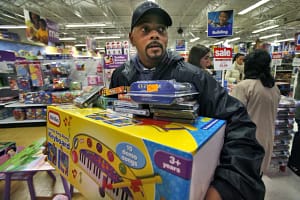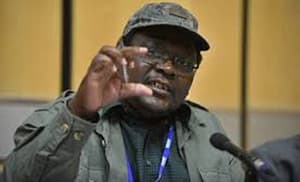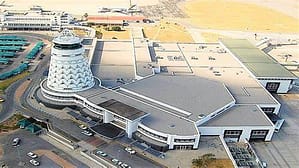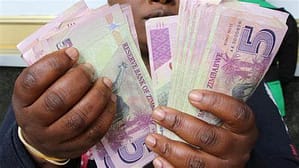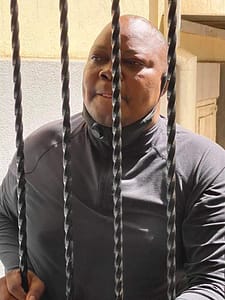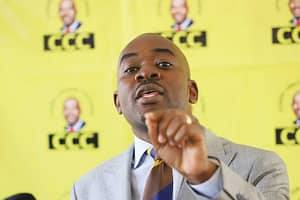People dying to exercise freedom in independent African countries
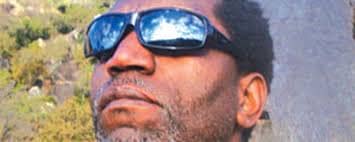
By Rejoice Ngwenya
It is inconceivable, actually to the point of being ridiculous, that in this 21st Century, people have to die for freedom even in so-called ‘independent’ Africa. However, you will find that most, if not all of the world’s ‘best’ democracy – I am talking India, USA, Germany, Japan – citizens underwent periods of gruesome conflict before those with the reigns of authority eventually ceded power. The British, as the world most prominent imperial power in history, have footmarks of oppression that carry the highest fatalities incurred in resisting political hegemony. Elizabeth Alexandra Mary ought to bow her head in shame.

For Africa, as if the slave trade had not inflicted enough misery, our trouble assumed new dimensions when warmonger Otto Bismarck presided over the ‘expropriation without compensation’ 1884-5 Berlin Conference. I suppose by then Jan Anthoniszoon van Riebeeck’s Vereenigde Oostindische Compagnie had already done indelible colonial damage at the Cape two centuries earlier. Funny enough as a history student at Lower Gwelo secondary school, I did not attach much ‘liberation context’ to these amazing narrations. When you’re born and bred in colonialism – or in today’s lingua franca, oppression – everything seems normal. I was very much aware of racial discrimination around me because I knew there were areas of Gwelo, Selukwe and Bulawayo city we black Africans were not allowed to patronise, but at that tender age, this anomaly presented itself as cultural rather than political infirmity.
Things changed when black Mozambicans ‘defeated’ the Portuguese colonial power in 1975. I began to take interest in the exploits of Joshua Nkomo, Robert Mugabe and Steve Biko. One chilly morning, our principal at Cyrene Mission, Father Eubank read us a news item on many students having been shot dead in Soweto during an uprising. My political destiny was sealed. A year later, my late father and I were coming from the fields and word spread that some ‘Boys’ had gathered people around at our local shopping centre. He decided we detour out of sheer curiosity. The heavily armed guerrillas looked to be in their late twenties, jovially unkempt. They struck me as very articulate but aloof, explaining to the village head that they would need a few brave young men to help them lookout for troublesome Rhodesian soldiers. My father, a prominent teacher in the village no doubt keen to show off his knowledge, tried to ask a few questions about gun range and cartridge capacity. One of the nicer ‘Boys’ politely told him to stick to his business of teaching. Back home in the evening, we talked about stories of death and destruction the war had caused; and my mother swore she would never permit me to join the ‘Boys club’. It did not take more than twenty four hours before the villages around Hanke Mission, St Francis Mission and Chivorise School were engulfed in ‘death and destruction’. By the end of the week, my parents had dispatched my young brother and me, on foot, to Chachacha shopping centre – fifteen kilometres away – en route to Bulawayo. That would be the last time I saw my village until after independence in 1985.

Informal records postulate that between 1973 and 1979, no less than twenty thousand innocent black Zimbabweans lost their lives in a senseless civil war. Ian Smith did not learn much from Mozambique’s brutal conflict. He shunned and despised numerous overtures by the global community – including Kenneth Kaunda – to negotiate peaceful transfer of power to black Zimbabweans. His Apartheid mentality resulted in needless deaths. In exile, I met hundreds of young men and women on their way to guerrilla training camps in Lusaka and Maputo, relishing the idea of dying to liberate our country. South Africa and Namibia were brought into the liberation fray as the world re-focused on Nelson Mandela. I took an interest in his Rivonia courage too:
“…. I have cherished the ideal of a democratic and free society in which all persons live together in harmony and with equal opportunities.It is an ideal which I hope to live for and to achieve.But if needs be, it is an ideal for which I am prepared to die.”
And so the question I ask myself today, 4th of July as Americans celebrate their conquest of British colonial hegemony; why are we, in Zimbabwe, still agonising over the meaning of true freedom? Why are Swazi people today in the streets fighting for the same cause that students of Soweto died for 1976? What version of freedom and independence hymn sheets do ‘leaders’ like Emmerson Mnangagwa, Makhosetive Mswati and Yoweri Museveni read when hundreds of opposition citizens are either in prison, on bail or routinely shot at with live ammunition? Why are there still laws that prevent citizens from campaigning freely, owning private radio and television stations in Zimbabwe and Swaziland? Why do ‘leaders’ like Patrick Chinamasa, who should know better, take pride in threatening citizens who do not agree with them? Why do we fear for our personal safety and the security of our vote in 2023?
Everything points to one thing – that the courage and resolute determination I saw on the faces of those ‘Boys’ at my village shopping centre in 1977 now more than ever needs to be replicated for us to regain what we lost since April 1980. The people of Swaziland have given us a head start in living Mandela’s final words before being kidnapped to Robben Island:
“The invincibility of our cause and the certainty of our final victory are the impenetrable armour of those who consistently uphold their faith in freedom and justice in spite of political persecution”.
Thank you, Madiba, for these words of courage. The naïve dip-tank may be accusing you of ‘selling out’ the Blackman’s cause, but only from the comfort of their feudal naivety. Here we are today – in Swaziland and Zimbabwe – back to the same cause that you spent thirty years in prison for. I wonder what the thousands of ‘Boys’ died for, yet even in so-called independent Africa, we still can’t breathe, burdened with poverty, disease, corruption and state sponsored violence. Yes, we have a life, but what good is this life without true freedom? Mina, I am simply a man of truth.
–Rejoice Ngwenya is a prominent writer
